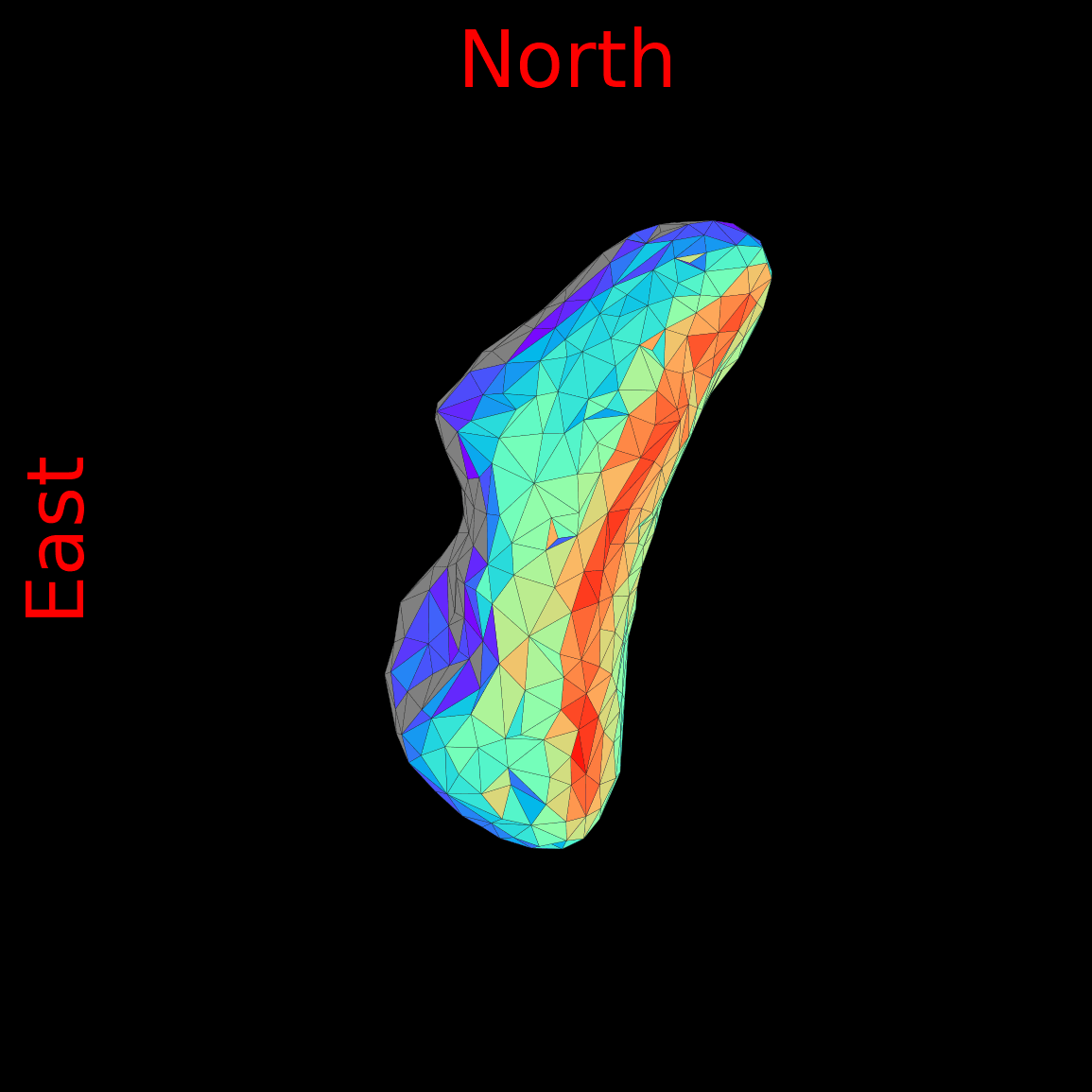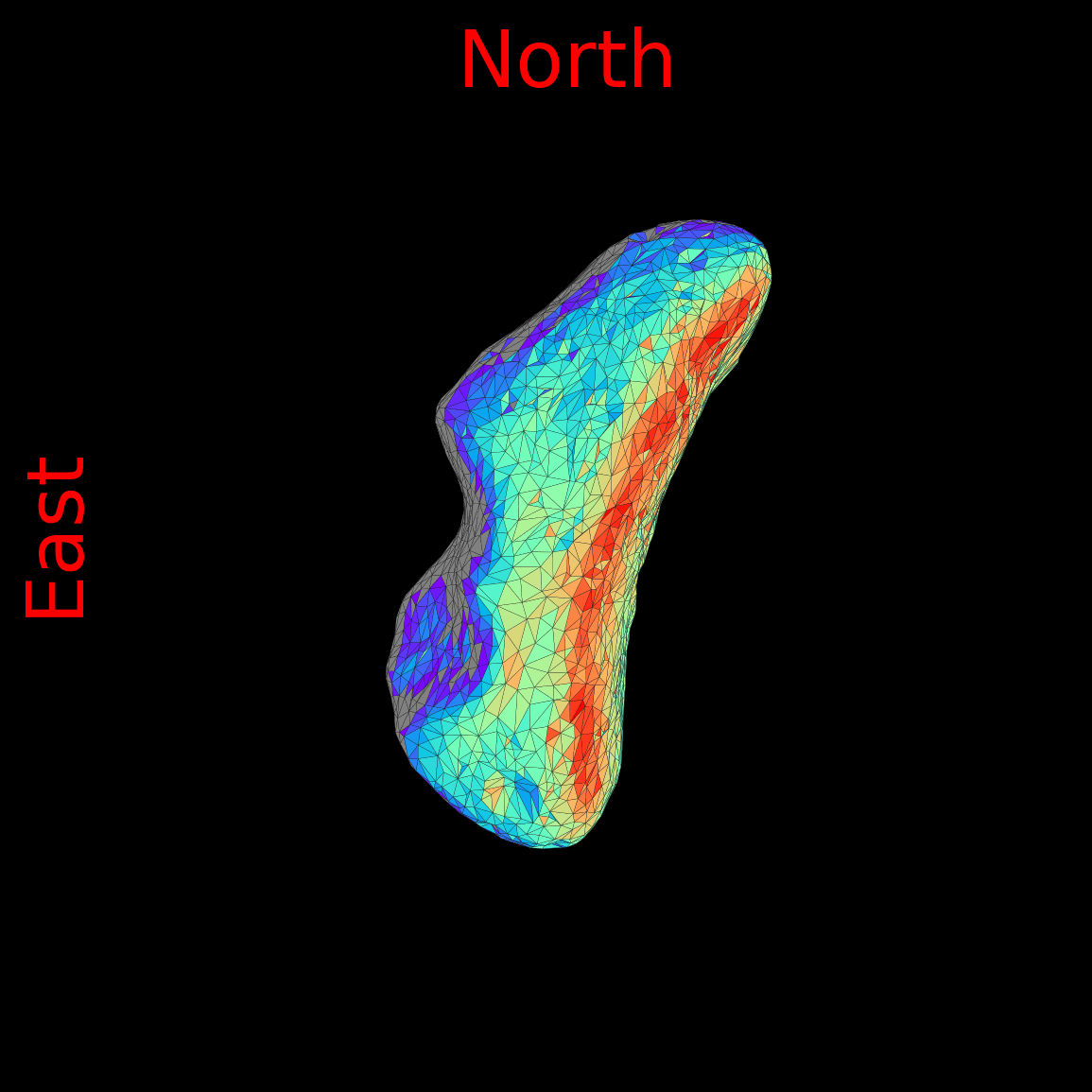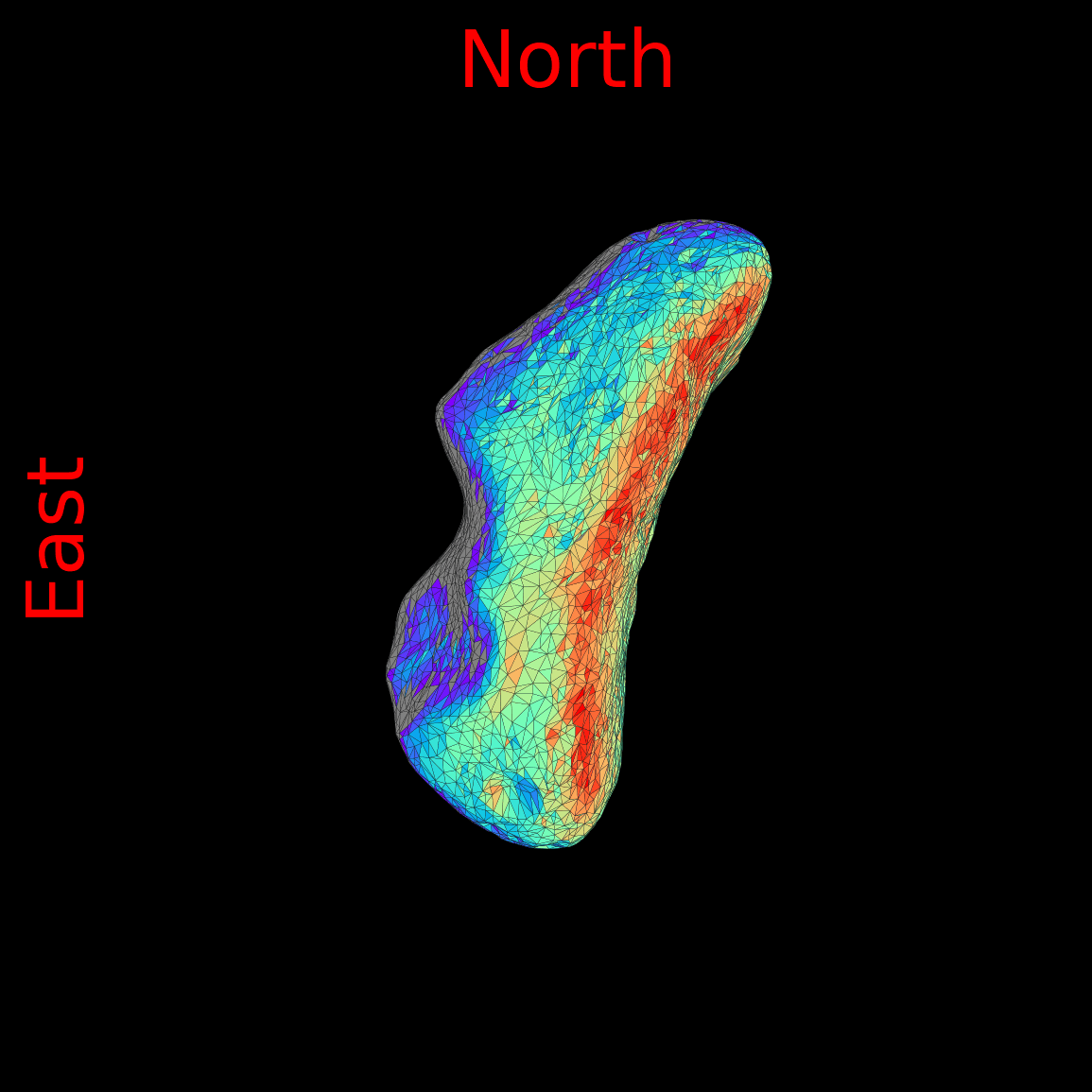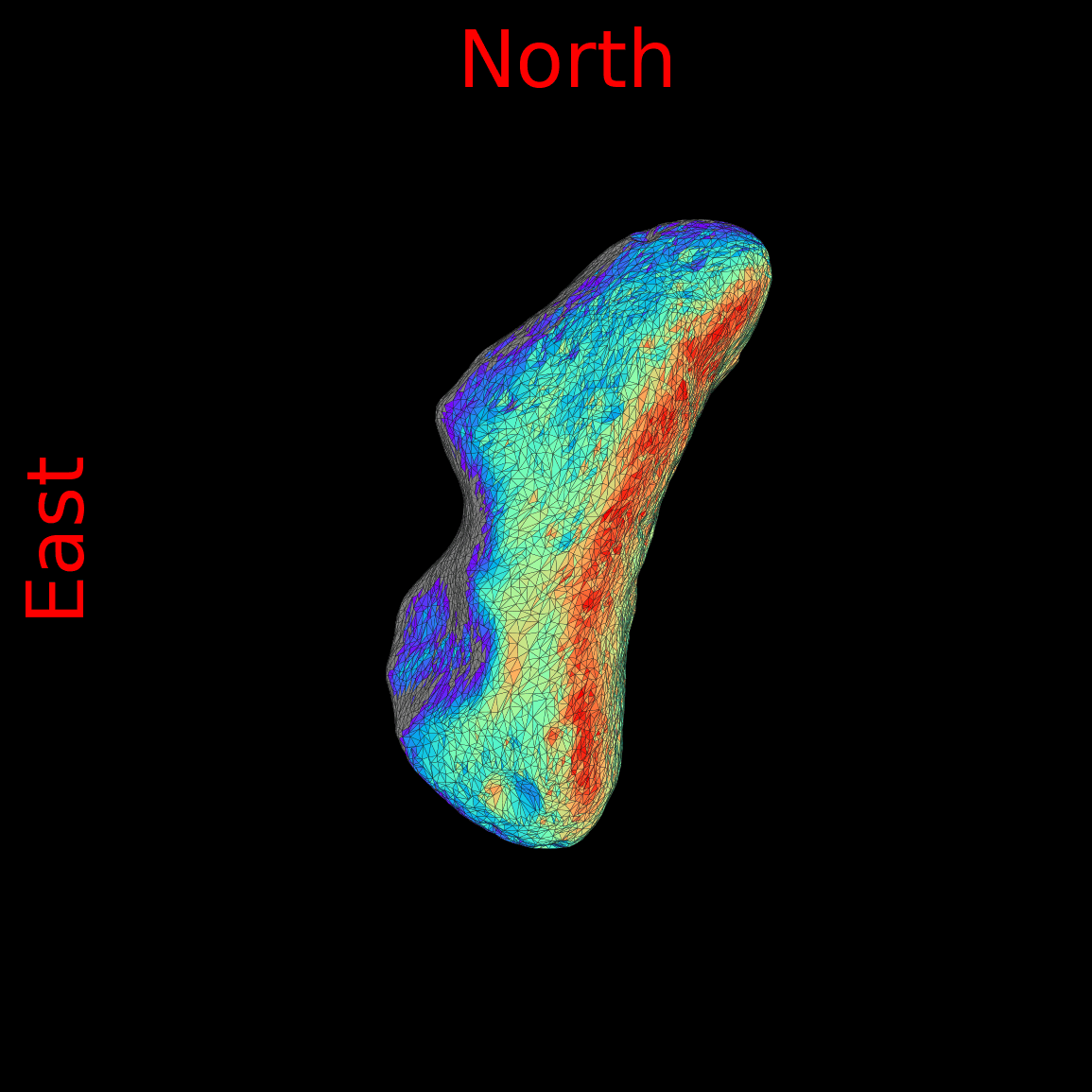Light Curve Tool for Small Bodies
Computation Benchmarks
The tool enables users to simulate rotational light curves using several photometric models and to render images from shape models. However, the computational cost can vary significantly depending on the number of facets in the shape model, the desired light curve resolution, or the selected photometric model. Below, we provide benchmark tests to help users estimate expected runtimes and adjust their input settings accordingly. A forthcoming hardware upgrade is expected to significantly reduce these computation times.
⚠️ Current runtime limit: 10 minutes. Tasks exceeding this time will be interrupted by the server.
Rendering a single image
| Number of facets | Computation time (s) |
|---|---|
| 1k | 3.64 |
| 5k | 10.89 |
| 10k | 20.97 |
| 20k | 50.77 |
Light curve simulation of 36 points (without image rendering)
| Number of facets | Minnaert model time (s) | Hapke model time (s) |
|---|---|---|
| 1k | 3.54 | 4.50 |
| 5k | 10.72 | 15.30 |
| 10k | 21.72 | 32.36 |
| 20k | 57.54 | 72.12 |
Light curve simulation of 360 points (without image rendering)
| Number of facets | Minnaert model time (s) | Hapke model time (s) |
|---|---|---|
| 1k | 16.75 | 27.02 |
| 5k | 83.61 | 135.64 |
| 10k | 196.29 | 291.55 |
Fig. 1 shows the rendered projections of asteroid (433) Eros using different shape model resolutions. This test allows users to evaluate whether increasing the number of facets significantly affects the visual output. In practice, above ~20k facets, the improvements are marginal.

a) 1k facets

b) 5k facets

c) 10k facets

d) 20k facets
Fig. 1: Projection of the Eros shape model used for this benchmark.